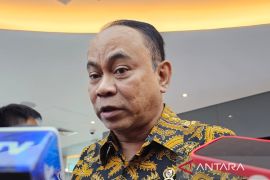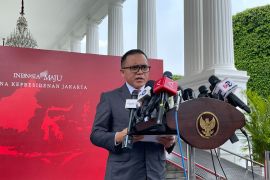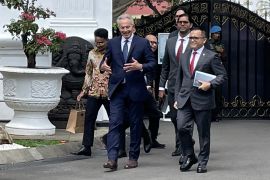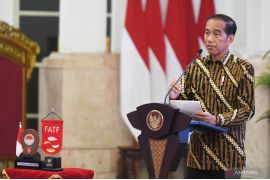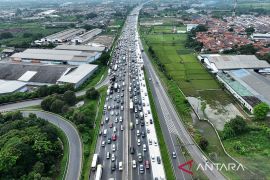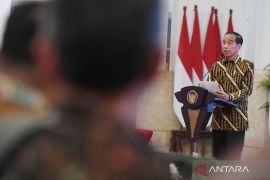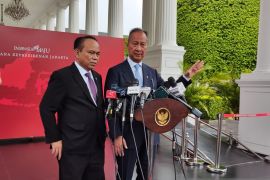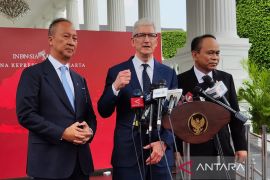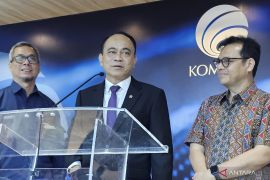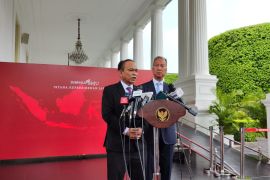"We will decide on whether to build the high-speed railway line at the end of this month, following assessments by consultants who will advise the government," he said after attending the commemoration of National Child Day 2015 at the Bogor Palace on Tuesday.
The assessment will cover all aspects of the project, including costs, technicians, construction and technology, he said.
"We will also consider long-term cooperation and local content. If all parts of the project have been decided, we will announce them," he said.
Asked which consultants would be selected, the President said those who did not have any conflict of interests would be chosen.
He said a feasibility study for the project had been completed, and its results had been handed over to the government.
The feasibility study suggested the investor would successfully complete the project by its given deadline.
Earlier, President Jokowi received the results of a feasibility study on the construction of the high-speed railway line from the Chinese government.
"The President has received Chinese Minister of National Development and Reform Commission Xu Shaoshi, who came to present the results of a feasibility study conducted by a Chinese company to the Indonesian government," Coordinating Minister for Economic Affairs Sofyan Djalil said on Monday.
Djalil said the government would soon evaluate the results of the feasibility study and decide whether to go ahead with the project.
Indonesia and China signed eight memoranda of understanding (MoUs) some time ago on cooperation between the National Development and Reform Commission (NDRC) and the Indonesian State-Owned Enterprises Ministry to build a high-speed railway line linking Jakarta and Bandung.
The MoUs also covered economic cooperation between the NDRC and the Coordinating Ministry for Economic Affairs as well as cooperation between the Indonesian National Search and Rescue Agency (Basarnas) and the Chinese Transportation Ministry.
Moreover, the two countries also signed a protocol of agreement to prevent double taxation.
The NDRC is one of Chinas major administrative bodies, responsible for a wide range of economic, social and environmental laws and policies within the country.(*)
Editor: Heru Purwanto
Copyright © ANTARA 2015
